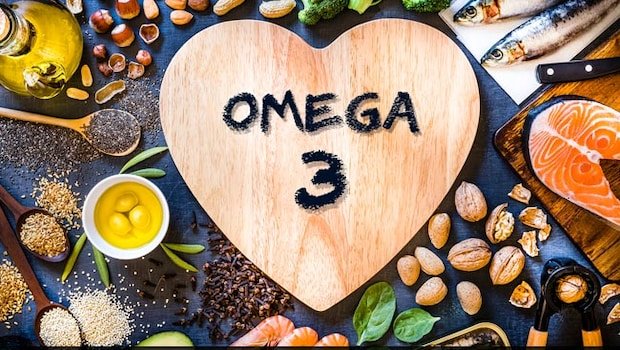It’s everywhere: TV ads insist on highlighting that your products contain Omega-3s to take care of the heart. He is the fashionable nutrient, and yet one of the most unknown, since beyond being a cholesterol regulator, he has other important functions in our body. Find out here why omega-3 is important in your diet and what are the foods rich in Omega-3 that you should have in your diet to be healthy and strong.
It should be borne in mind that there are various types of polyunsaturated Omega-3 acids. Each of the types of foods we will explain below contains a type of omega-3, so ideally it is important to always maintain a balanced diet, also in the consumption of nutrient types in order to ensure the intake of all modalities.
List of foods rich in omega-3
How much Omega-3 does our body need for its proper functioning? According to the Spanish Heart Foundation, a daily intake of 250 mg of omega-3 is recommended if you want to maintain good cardiovascular health and minimize the risk of coronary heart disease.
Omega 3, in addition to reducing fat levels in the blood, favoring good cholesterol levels compared to harmful ones, has antioxidant properties and helps diabetics control their level of cholesterol. It has also been shown to be key in reducing blood pressure in hypertensive people and the treatment of skin disorders such as psoriasis.
Although the food richest in omega-3 is considered to be salmon, the truth is that these 5 foods are richer in omega-3 than it is.
– Vegetable oils
– Seeds
– Bluefish
– Nuts.
– Seafood
– Green leafy vegetables
The quinoa
The quinoa is a seed to be consumed as cereal (hydrated or cooked). It contains five times more omega-3 than salmon (8.35 gr/100 gr). It is a carbohydrate food with a very low glycemic index but a great energy contribution. Quinoa is an important source of proteins of quality, fiber, and minerals. However, it is important not to use it as a substitute for all foods. It must be part of a balanced diet.
The nuts
In general, nuts have a strong number of polyunsaturated fats like omega-3. Especially nuts, which contain 6.4 grams of omega-3 per 100 grams of food. In addition to being one of the main nuts in terms of omega 3, its regular consumption provides other nutrients such as proteins, minerals, vitamins, and antioxidant assets. They also contain fiber, potassium, and magnesium. However, it must be eaten in moderation (5 maximum per day).
The chia
Continuing with seeds as foods rich in omega 3, the next on the ladder is chia, which in addition to having an important contribution of this nutrient (4 grams per 100 gr), is one of the main sources of fiber. It is usually taken as if it were inflated rice in liquids, although it is important not to exceed the amount of 20 grams per day.
The tuna
Most bluefish, in addition to many seafoods, are a source of omega 3, so it is important to consume them as part of the diet. Tuna is, among all blue fish, the one that contains the most of this acid. In addition, it contains significant amounts of protein, making it highly recommended.
The mackerel
The mackerel is a fish, also of the blue type, which in addition to being a food rich in omega 3 contains vitamin D, B12, and phosphorus.
